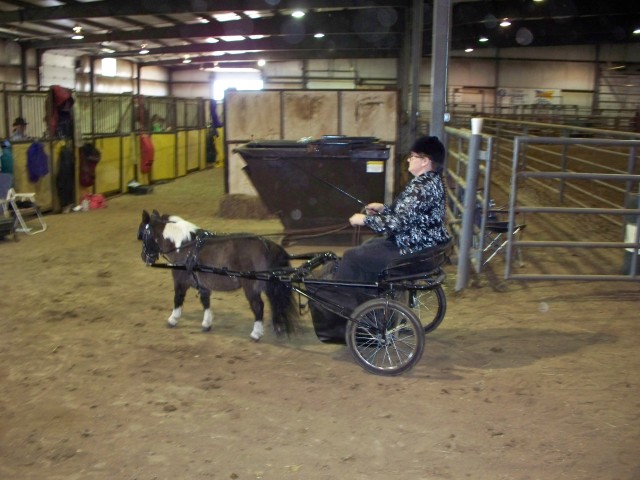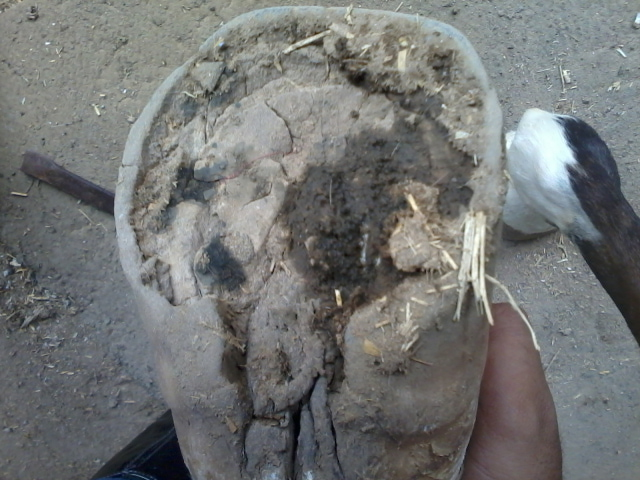QuestionQUESTION: hi, i picked you because you are from colorado.We recently moved to coal creek canyon, up 9300 ft. our horses were flat landers about 6500ft, we have only been here 3 months, today we road kinda longer than usual and it was hot today,when we got home, our 14yr old gelding got a gusher bloody nose, he drinks and eats fine, is this normal and what can i do to either prevent it or be more aware of?
ANSWER: Hey Candi - I just checked my email before turning in for the night and saw your question. Actually bleeding like this is pretty common on the race track due to exercise intolerance. Trainers control it by using a controversial drug called Lasix. Is your gelding a Thoroughbred by any chance? Thoroughbreds aren't the only breed this can happen to but some research suggests that all TB's experience exercise induced pulmonary hemorrhage or EIPH.
Since you mentioned riding longer than normal in pretty hot conditions, I'm wondering if your horse has had a similar episode. To be sure, he would need to have an endoscopic exam. Not sure how possible it would be to take your gelding over to CSU's Vet Teaching Hospital but they have board certified clinical pathologists that can scope him for you. They would also be able to examine other possible causes.
Horses with EIPH do better in well ventilated environments free of dust and of course exercised very lightly.
I hope this helps Candi ... let me know how he's doing and if you have any other questions.
Thank you!
---------- FOLLOW-UP ----------
QUESTION:
no he is not a race horse, he is a normal 14 yr old QH,I was wondering if altitude change could cause this?
AnswerThank you Candi - at 14, I assumed that he was probably not racing but could have been a TB or TB-cross. QH's (as well as all other breeds) can and are affected by EIPH. The altitude change could have absolutely played a roll in your horse's nose bleed. Just like with people, exercise for horses becomes more of a challenge at altitude because of the reduced oxygen levels - I have no doubt that this compounded the extended workout your horse had. This could have caused him to breath hard enough to disrupt the delicate lining in the lungs, causing the EIPH. Hopefully it will be an isolated incident but of course if it continues to occur on a frequent basis, you'll probably want to seek the advice of your veterinarian.

 round bulged spots
Question
round bulged
hello Lyn, are you able to
round bulged spots
Question
round bulged
hello Lyn, are you able to
 Mini Horse Training
QuestionToughy the mini
QUESTION: Hello (again!)
Mini Horse Training
QuestionToughy the mini
QUESTION: Hello (again!)
 thrush on hoof
Question
thrush
hello. hope you can answer this
thrush on hoof
Question
thrush
hello. hope you can answer this
 posting slightly at canter
Question
marina
hello Dorothy. when i was trotti
posting slightly at canter
Question
marina
hello Dorothy. when i was trotti
 blistered legs
Question
blistered legs
hello. are these blister
blistered legs
Question
blistered legs
hello. are these blister